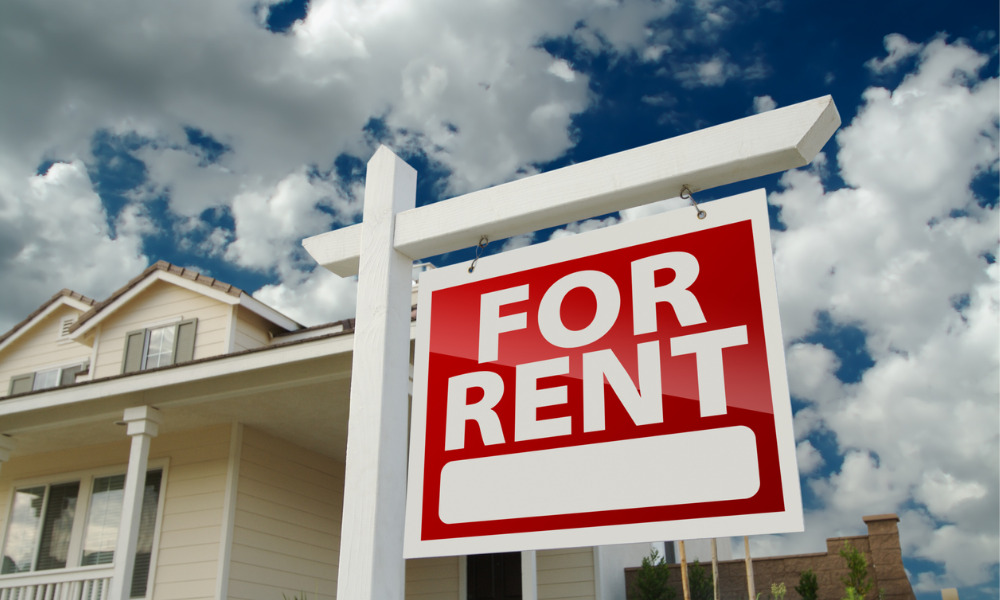Increase comes despite slowdowns in Vancouver and Toronto

The annual asking rent for all residential property types in Canada saw an increase year-over-year in November and held close to the record high in October, according to data from the National Rent Report by Rentals.ca and Urbanation.
The report found that November saw an 8.4% year-over-year increase – meaning an average rent of $2,174. This was only a 0.2% month-over-month decrease from the asking rents seen in October, which averaged $2,178, signalling a moderating annual rate of rent growth for the third consecutive month.
“Rent inflation in Canada is slowly starting to moderate, a trend being led by a notable slowdown in rents in the country’s most expensive big cities of Vancouver and Toronto,” said Shaun Hildebrand, president of Urbanation.
“Renters are adjusting to record high housing costs by shifting into less expensive markets,” he added.
Residential property rent growth
In November, rents for studio apartments accelerated to an annual growth rate of 12.1%. One-bedroom apartments continued to have the strongest annual rent growth at a rate of 13.6%, but it was a notably slower pace compared to previous months. Two-bedroom apartments also saw a slowdown in annual rent growth – from 11.8% in October to 11.2%.
Alberta led the annual growth among regions with a 16.1% year-over-year increase, averaging a total of $1,695. British Columbia had a 2.2% month-over-month decrease as well as slowed annual growth with a 6.5% rate despite having the highest average apartment rents.
Meanwhile, Edmonton surpassed Calgary in rent growth with asking rents increasing by 11.9% year-over-year, while Vancouver and Toronto saw a sharp slowdown in rent increases with their asking rents averaging $3,171 and $2,913 respectively.
Greater Vancouver and Greater Toronto dominated the top rankings of the 25 most expensive small and medium-sized markets in Canada as they were concentrated in British Columbia, Ontario, and Quebec. Côte Saint-Luc, in Quebec, had a 29.4% annual increase, marking a continued streak of being the fastest-growing market for apartment rents in October.
For shared accommodation, average asking rents reached $960 in British Columbia, Alberta, Ontario, and Quebec. Quebec also saw the fastest growth in shared accommodation rent with a rate of 26.2%, averaging $923.
The National Rent Report charts and analyses monthly, quarterly, and annual rates as well as the trends in the rental market at national, provincial, and municipal levels, spanning across all listings within the Rentals.ca Network for the country.



